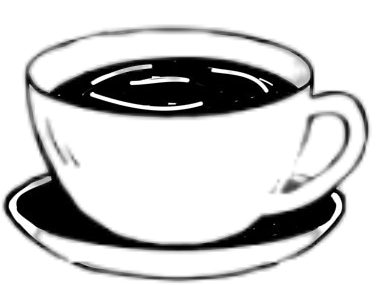
As someone who has spent a considerable amount of time navigating the fascinating world of cultural practices, I’ve often found myself delving into the dietary restrictions observed by different communities. One particularly intriguing aspect is the stance that members of The Church of Jesus Christ of Latter-day Saints, commonly known as Mormons, take on coffee consumption. This cultural prohibition has roots in religious beliefs, health considerations, and lifestyle choices that are deeply embedded in the community.
In this article, I will share my insights on why Mormons abstain from drinking coffee, drawing from personal experiences and observations. While I don’t identify as a member of this faith, I have always been curious about the nuances behind their dietary guidelines and the broader implications for those who choose to follow them.
Understanding the Prohibition
The primary reason Mormons refrain from drinking coffee is related to the Word of Wisdom, a health guideline revealed to Joseph Smith, the founder of the Church, in 1833. This revelation promotes a lifestyle of physical and spiritual well-being, emphasizing moderation and the avoidance of substances that can harm the body. The specific language states, “hot drinks are not for the belly,” which the church interprets as a prohibition against coffee and tea.
When I first learned about this, I was curious about how such a guideline impacts the daily lives of individuals within the community. It’s not just about abstaining from a beloved beverage; it’s a part of a larger lifestyle choice that encompasses health, discipline, and spirituality.
The Coffee Culture Dilemma
As someone who enjoys coffee—its rich aroma, the comforting ritual of brewing, and the energy boost it provides—I found it challenging to wrap my head around the idea of completely giving it up. My initial thoughts were filled with skepticism: how could anyone resist the allure of coffee?
To gain a deeper understanding, I started speaking with friends and acquaintances who are members of the church. Many expressed that, while they do miss coffee, they find satisfaction in various alternatives that align with their dietary guidelines. Herbal teas, for example, have become a popular substitute. They provide warmth and comfort without compromising the principles of their faith.
Through my conversations, it became evident that the absence of coffee does not leave a void in their lives. Instead, it seems to foster a greater appreciation for other beverages and encourages creativity in crafting flavorful drinks that adhere to their beliefs. This perspective allowed me to appreciate how dietary restrictions can shape personal habits in meaningful ways.
Exploring Alternatives to Coffee
After exploring this topic further, I became curious about what alternatives Mormons might enjoy. During my research, I discovered an array of beverages that provide similar warmth and comfort without the caffeine kick that coffee offers.
Herbal Teas and Infusions
One of the most popular alternatives is herbal tea. With countless varieties available, herbal teas can cater to a range of tastes and preferences. Chamomile, peppermint, and rooibos are just a few examples that not only taste great but also come with their own set of health benefits.
I remember trying a refreshing peppermint tea one evening. The aroma was uplifting, and the warm liquid felt soothing as I sipped it slowly. It was a pleasant reminder that there are many ways to enjoy a cup of warmth without relying on coffee.
Chicory Coffee
Chicory coffee is another intriguing substitute that I came across. Made from the roasted root of the chicory plant, it has a deep, robust flavor reminiscent of coffee, yet it is caffeine-free. I decided to give it a try, and I was pleasantly surprised. The flavor was earthy and satisfying, providing a similar experience to that of traditional coffee without the negative effects associated with caffeine.
Chicory coffee can be brewed in a variety of ways, which adds to its versatility. Whether enjoyed black or with a splash of milk, it offers an enjoyable alternative for those seeking a coffee-like experience.
Golden Milk
Golden milk, made with turmeric, milk (or a dairy alternative), and spices, is gaining popularity as a healthy, caffeine-free option. I tried making it at home one morning, blending the ingredients into a warm, soothing drink. The bright golden color was inviting, and the flavors combined to create a rich, aromatic experience.
Golden milk not only satisfied my craving for warmth but also introduced me to the health benefits associated with turmeric, including anti-inflammatory properties. This alternative became a staple in my routine, showing me that there are always other choices when one aspect of our lives is restricted.
The Role of Community
The coffee debate also opens up discussions about community and social practices. For Mormons, the choice to avoid coffee often aligns with their values and principles, fostering a sense of identity and belonging.
During gatherings or social events, where coffee is typically served, Mormons often bring their own alternatives or enjoy the non-caffeinated options available. I’ve witnessed this camaraderie in action; friends gathering for a picnic, each sharing their favorite herbal teas and creative beverages. It’s a wonderful way to connect, celebrate their values, and share their personal tastes without feeling left out.
A Personal Reflection
Reflecting on this exploration, I’ve gained a deeper appreciation for how dietary choices—whether they stem from cultural, religious, or personal beliefs—can influence our daily lives. As someone who once viewed coffee as a staple, I’ve learned to embrace the variety of options available and to consider the broader implications of my consumption choices.
Not only does this journey open doors to new flavors and experiences, but it also allows for a more mindful approach to what we put into our bodies. In a world where instant gratification often reigns, taking a step back to consider the impact of our choices feels incredibly valuable.
Product Review Conclusion
In conclusion, the prohibition against coffee within the Mormon community presents an opportunity for exploration and discovery. While I personally enjoy coffee, my experience has opened my eyes to the rich tapestry of alternatives available. From herbal teas to chicory coffee and golden milk, there are numerous options that can satisfy cravings for warmth and flavor.
This journey has also highlighted the importance of community and shared values in navigating dietary restrictions. By embracing alternatives and fostering connections, individuals can find fulfillment and joy in their choices while staying true to their beliefs.
FAQ Section
Q: Why can’t Mormons drink coffee?
A: Mormons abstain from drinking coffee due to the Word of Wisdom, a health guideline that prohibits “hot drinks,” which is interpreted to mean coffee and tea. This guideline is part of a broader emphasis on health and well-being within the community.
Q: What are some alternatives to coffee that Mormons enjoy?
A: Mormons often enjoy herbal teas, chicory coffee, and golden milk as alternatives to coffee. These beverages provide warmth and comfort without the caffeine associated with traditional coffee.
Q: Do Mormons miss drinking coffee?
A: While many Mormons do miss coffee, they often find satisfaction in exploring various alternatives that align with their dietary guidelines, allowing them to enjoy flavorful drinks without compromising their beliefs.
Q: How do dietary restrictions influence community gatherings for Mormons?
A: Dietary restrictions often encourage Mormons to bring their own alternatives to social gatherings. This fosters a sense of community as individuals share their favorite herbal teas and creative beverages, allowing everyone to participate and enjoy without feeling left out.
Q: Can you recommend some herbal teas that are popular among Mormons?
A: Popular herbal teas among Mormons include chamomile, peppermint, rooibos, and hibiscus. These teas offer a range of flavors and health benefits, making them excellent alternatives to coffee.
